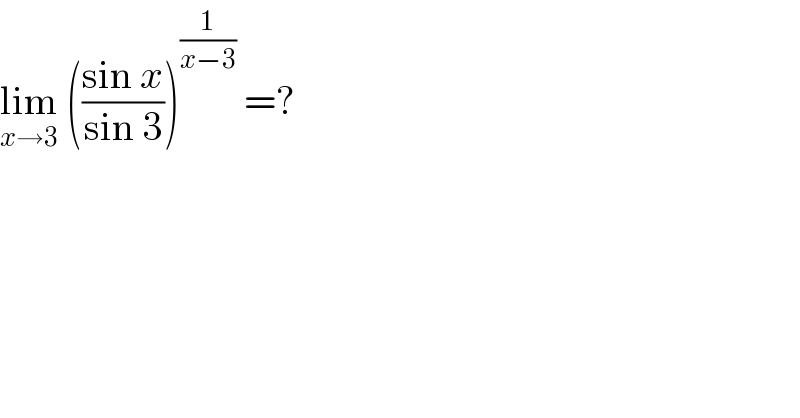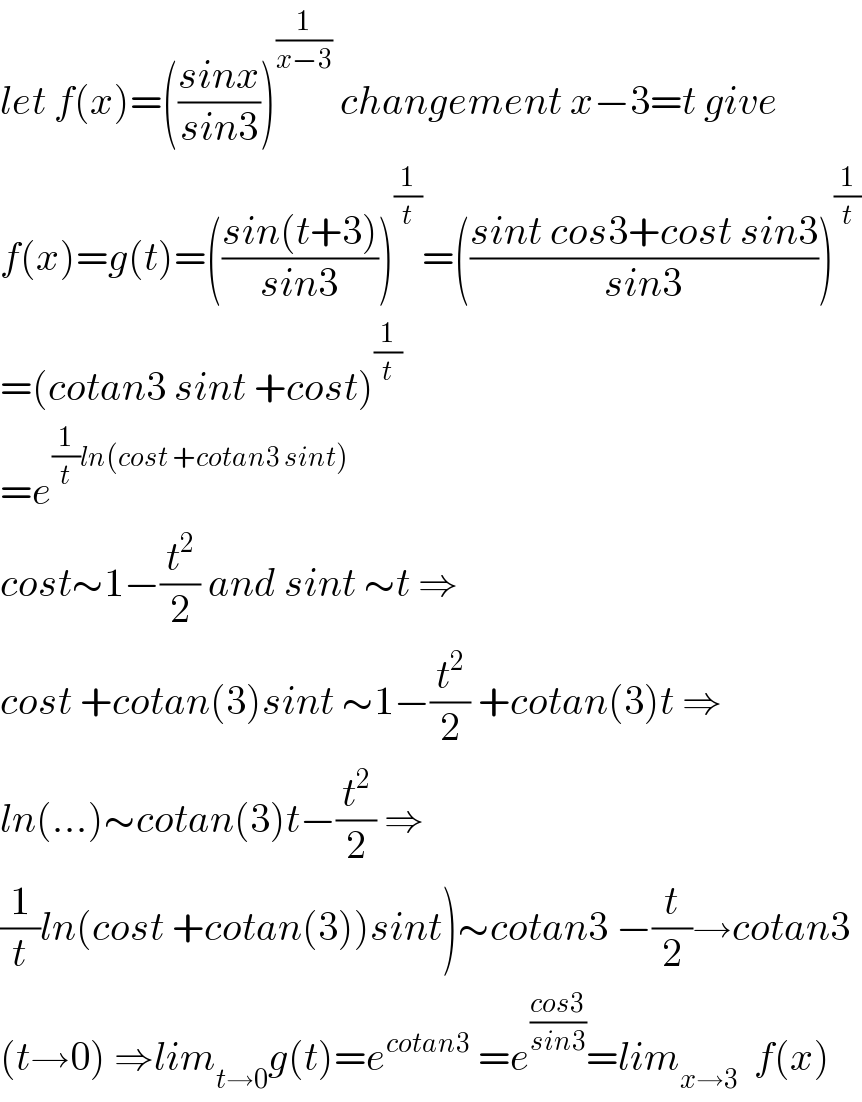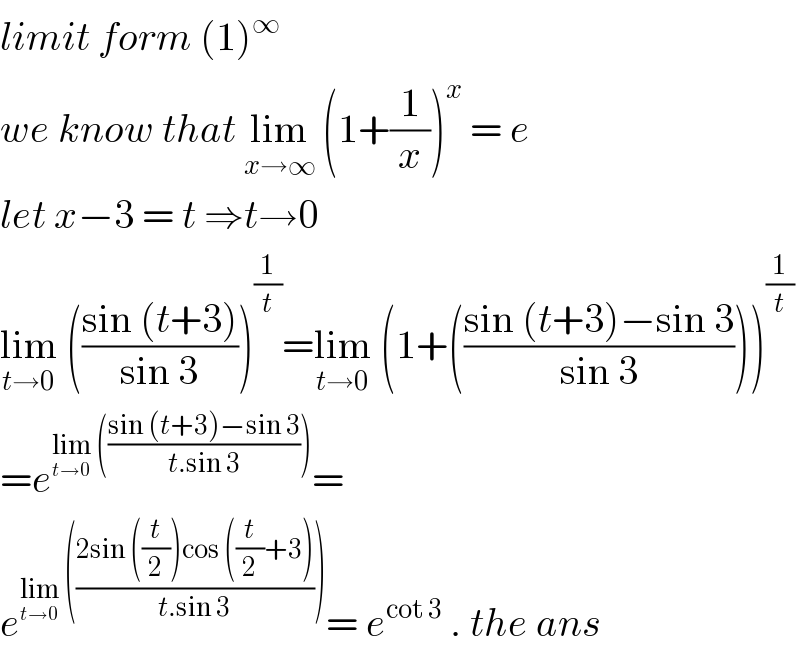
Question and Answers Forum
Question Number 81096 by jagoll last updated on 09/Feb/20

Commented by abdomathmax last updated on 09/Feb/20

Answered by john santu last updated on 09/Feb/20

Commented by jagoll last updated on 09/Feb/20

| ||
Question and Answers Forum | ||
Question Number 81096 by jagoll last updated on 09/Feb/20 | ||
 | ||
Commented by abdomathmax last updated on 09/Feb/20 | ||
 | ||
Answered by john santu last updated on 09/Feb/20 | ||
 | ||
| ||
Commented by jagoll last updated on 09/Feb/20 | ||
 | ||